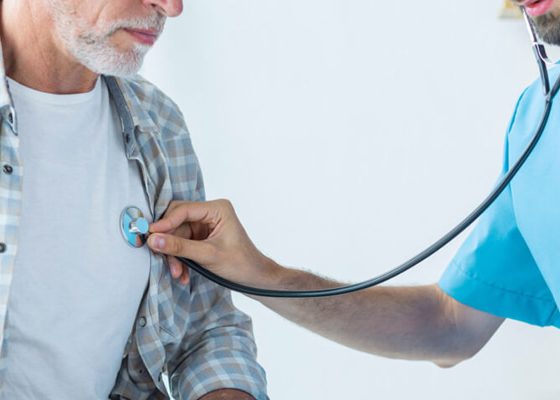Sleep, often regarded as a mere necessity, is, in reality, the cornerstone of our overall well-being. In a world that sometimes prioritizes productivity over proper rest, it’s essential to understand and cultivate a nighttime routine that truly revitalizes our bodies and minds. This article is your guide to a comprehensive exploration of sleep improvement strategies, and how to enhance your nighttime routine for a more refreshing and restorative experience.

The Fascinating World of Sleep Cycles
Sleep is a complex process, with distinct stages that affect the quality of rest. These stages include light sleep, deep sleep, and REM (Rapid Eye Movement) sleep, each serving a unique purpose. Understanding these stages is the first step in improving your sleep quality.
Light Sleep: The Beginning
Light sleep is the entry point to your slumber, a state where your body begins to relax, and your heart rate and brain activity slow down. During this stage, your body prepares for deeper and more restorative sleep.
Deep Sleep: Where True Restoration Occurs
This is the stage where your body undergoes the most significant restorative processes. Muscles are repaired, energy is restored, and vital hormones are released. Achieving deep sleep is the key to feeling refreshed upon waking.
REM Sleep: The Mind’s Playground
During REM sleep, your brain becomes highly active, almost as active as when you’re awake. It’s the stage where dreams occur, and cognitive functions are revitalized. Lack of REM sleep can lead to feeling mentally drained.
Discovering Your Ideal Sleep Duration
One size does not fit all when it comes to sleep duration. The right amount of sleep varies from person to person, but there are factors that can help you determine your ideal sleep duration.
Age Matters
Age plays a crucial role in how much sleep you need. Children and teenagers typically require more sleep than adults, and understanding this distinction can guide you toward a more tailored approach to your sleep routine.
Lifestyle and Individual Variations
Factors such as genetics, daily physical activity, and overall health can influence your sleep needs. Identifying these personal factors is essential in establishing your perfect sleep duration.
Crafting a Tranquil Bedtime Environment
The environment in which you sleep can significantly impact your sleep quality. Your bed, the lighting, and room temperature are all integral parts of creating a peaceful oasis for your rest.
The Perfect Mattress and Pillows
Choosing the right mattress and pillows is a highly personalized process. The goal is to find the balance between support and comfort that suits your unique preferences.
Mastering Room Temperature and Lighting
Creating the ideal sleep environment involves regulating the temperature and controlling lighting. Discover how small adjustments can make a big difference in your sleep quality.
The Digital Detox Before Bed
In the age of screens and technology, it’s important to acknowledge the disruptive role of blue light and how to counteract its effects on your sleep.
Blue Light and Your Circadian Rhythm
Blue light emitted by electronic devices like smartphones and laptops can interfere with your natural circadian rhythm. Uncover strategies for reducing screen time before bedtime to promote a restful night.
Embracing Mindful Evening Activities
The hours leading up to bedtime provide an opportunity to prepare your body and mind for a tranquil night’s rest. Incorporating relaxing rituals can make a significant difference in the quality of your sleep.
The Art of Winding Down
Winding down may include activities such as reading, taking a warm bath, or simply savoring a calming cup of herbal tea. These rituals signal to your body that it’s time to relax and prepare for sleep.
The Power of Meditation and Deep Breathing
Meditation and deep breathing exercises can soothe an overactive mind, reducing stress and anxiety that might keep you awake at night. Incorporating these practices into your evening routine can foster a more peaceful slumber.
Enhancing Sleep Through Diet and Nutrition
What you eat and when you eat it can significantly impact your sleep quality. Discover the foods and dietary habits that enhance your slumber.
Foods that Encourage Sleep
Certain foods, such as those rich in tryptophan, melatonin, and magnesium, can promote better sleep. Explore the ingredients that can help you achieve a deeper and more revitalizing rest.
Timing Is Everything
The timing of your meals can also affect your sleep. Late-night feasting or heavy, spicy meals close to bedtime can lead to discomfort and disrupted sleep. Learn when and what to eat to optimize your sleep quality.
The Crucial Role of Hydration
Staying properly hydrated is vital for overall health, but how you hydrate in the hours before bedtime can influence your sleep.
Dehydration’s Impact on Sleep
Dehydration can lead to discomfort and disrupt your slumber. Understand the connection between hydration and sleep and how to ensure you’re properly hydrated without frequent nighttime trips to the bathroom.
Hydration Strategies for the Evening
Balancing your hydration needs with the desire for uninterrupted sleep can be a delicate task. Learn the optimal strategies for evening hydration to enhance your rest.

Exercise and Its Impact on Sleep Quality
Physical activity plays a crucial role in overall health, but its timing and intensity can significantly affect your sleep quality.
The Benefits of Exercise for Sleep
Engaging in regular physical activity has been shown to improve sleep patterns and reduce the time it takes to fall asleep. Explore the relationship between exercise and sleep and how to incorporate it into your daily routine.
Timing Your Workouts for Better Sleep
While exercise offers many benefits, vigorous workouts too close to bedtime can be counterproductive. Discover the optimal timing for your physical activity to ensure it enhances, rather than hinders, your sleep.
Taming Stimulants: Caffeine and Its Half-Life
Caffeine is a widely consumed stimulant that can affect your sleep quality. Understanding its half-life and managing its impact is essential for a restful night.
Unveiling the Half-Life of Caffeine
Caffeine’s half-life is the time it takes for your body to eliminate half of the caffeine you’ve consumed. This plays a significant role in its effects on your sleep. Dive into the science of caffeine metabolism.
Strategies for Managing Caffeine Intake
Balancing your love for coffee with your desire for quality sleep requires strategy. Explore methods for managing your caffeine consumption throughout the day to ensure it doesn’t disrupt your nighttime routine.
Alcohol and Sleep: A Complex Relationship
Alcohol is often consumed as a relaxant, but its effects on sleep are more intricate than they might seem. Understanding the impact of alcohol on sleep cycles is vital for informed and responsible consumption.
The Short-Term Effects of Alcohol on Sleep
While alcohol can initially make you feel drowsy, it negatively impacts the later stages of sleep. Dive into the complex relationship between alcohol and your slumber.
Responsible Alcohol Consumption for Better Sleep
If you choose to consume alcohol, understanding how to do so responsibly to minimize its disruptive effects on sleep is crucial. We explore strategies for finding the right balance.
The Double-Edged Sword of Napping
Daytime naps can be both restorative and disruptive to your nighttime sleep. Discover the pros and cons of napping and how to harness its benefits effectively.
The Benefits of Daytime Naps
Well-timed and brief naps can boost alertness and improve mood. Explore the advantages of napping and how to make the most of these short breaks during the day.
Napping Wisely
Napping too long or too late in the day can lead to grogginess and difficulty falling asleep at night. Learn the art of napping wisely, including when and how to nap for optimal results.
Consistency Is Key: Establishing a Sleep Schedule
Maintaining a regular sleep schedule is one of the most powerful tools for improving your sleep quality. Explore the importance of consistency in sleep patterns and strategies for achieving it.
The Science of Sleep Patterns
Understanding the natural sleep-wake cycle and its influence on your sleep quality is essential. Learn about your body’s internal clock and how to align your bedtime routine with it.
Tips for Maintaining a Consistent Sleep Schedule
Life is full of challenges and distractions, but adhering to a sleep schedule can significantly enhance your sleep quality. Discover practical tips for ensuring your sleep routine remains consistent.
Cognitive Behavioral Therapy for Insomnia (CBT-I)
For those struggling with sleep disorders, cognitive behavioral therapy for insomnia (CBT-I) offers an evidence-based approach to improve sleep quality. Learn about this therapy and how it can help you overcome sleep-related challenges.
What Is CBT-I?
CBT-I is a structured program that helps individuals identify and replace behaviors and thoughts that cause or worsen sleep problems. It’s a highly effective method for addressing insomnia and other sleep disorders.
How CBT-I Can Improve Your Sleep
CBT-I provides practical techniques to address the root causes of your sleep issues, helping you build healthy sleep habits and overcome insomnia. Explore the ways in which this therapy can revitalize your sleep.
Natural Sleep Aids: Herbs, Supplements, and More
For those seeking natural alternatives to improve sleep quality, there are a variety of herbal remedies, supplements, and practices that can enhance your nighttime routine.
The World of Herbal Remedies
Certain herbs, such as valerian, lavender, and chamomile, have been used for centuries to promote relaxation and better sleep. Discover the properties of these natural sleep aids.
Supplementing for Sleep
From melatonin to magnesium, there is a range of supplements that can support your sleep routine. Understand the role of supplements in enhancing your sleep quality and how to use them safely.
The Consultation with a Healthcare Professional
Before embarking on a journey to enhance your sleep with natural aids, consider consulting a healthcare professional. They can provide personalized advice and ensure that your choices align with your overall health and well-being.

Sleep Disorders: Identifying and Seeking Help
Not all sleep issues can be resolved through lifestyle changes alone. It’s essential to recognize common sleep disorders and know when to seek help from a healthcare provider.
Identifying Common Sleep Disorders
From sleep apnea to insomnia and restless legs syndrome, various sleep disorders can significantly impact your rest. Learn to recognize the signs and symptoms of these disorders.
When to Consult a Sleep Specialist
If you suspect a sleep disorder is affecting your sleep quality, it’s crucial to seek the expertise of a sleep specialist. Understand when it’s time to reach out for professional guidance.
Stress and Its Impact on Sleep
Stress is a prevalent issue in our lives, and it has a direct impact on sleep quality. Explore the connection between stress and sleep, and discover effective strategies for managing stress to improve your nighttime routine.
The Impact of Stress on Sleep
Chronic stress can lead to sleep disturbances, making it difficult to fall and stay asleep. We delve into the physiological and psychological effects of stress on your sleep.
Stress Management Techniques
To enhance your nighttime routine, incorporating stress management techniques into your daily life is vital. Learn how mindfulness, relaxation exercises, and other stress-reduction methods can improve your sleep.
Relaxing Bedtime Beverages: Teas, Warm Milk, and More
What you consume before bedtime can have a substantial impact on your sleep. Discover the soothing qualities of bedtime beverages and how they can enhance your nighttime routine.
The Calming Powers of Herbal Teas
Herbal teas like chamomile, valerian, and passionflower have long been associated with relaxation and sleep promotion. Explore the various types of herbal teas and their potential benefits for your sleep.
The Ritual of Warm Milk
Warm milk, often associated with childhood, can be a comforting bedtime beverage for adults as well. Uncover the science behind why it works and how to incorporate it into your nighttime routine.
Creating Your Soothing Bedtime Drink Routine
The key to benefiting from bedtime beverages is consistency. Learn how to create a personalized and effective bedtime drink routine that signals to your body that it’s time to rest.
Aromatherapy for Sleep: The Power of Scents
Aromatherapy, the use of essential oils and scents, has gained popularity for its potential to enhance sleep quality. Explore the world of aromatherapy and its calming properties.
The Essential Oils That Promote Sleep
Lavender, cedarwood, and frankincense are just a few examples of essential oils known for their relaxing properties. Discover the science behind these scents and how to use them for better sleep.
Implementing Aromatherapy in Your Nighttime Routine
Incorporating aromatherapy into your nighttime routine involves diffusers, oil blends, and a thoughtful approach to creating a tranquil sleep environment. Learn how to harness the power of scents for enhanced rest.
Investing in Quality Bedding
The linens, fabrics, and thread count of your bedding can significantly impact your sleep quality. Understand the factors to consider when selecting quality bedding for a more restful night.
The Right Bed Linens and Fabrics
Cotton, silk, or linen? The choice of fabrics for your sheets and pillowcases can influence your comfort and sleep quality. Discover the characteristics of different materials.
The Role of Thread Count
Thread count is often used as a measure of bedding quality. We demystify thread count and help you understand how it can affect your sleep.
Sleep and Technology: Tools for Improvement
Technology can either hinder or assist your sleep quality. Explore how sleep-tracking apps and devices can provide valuable insights into your sleep patterns and guide your nighttime routine.
The World of Sleep Tracking Apps
From wearable devices to smartphone apps, there are numerous tools available for tracking your sleep. Understand the features and benefits of sleep-tracking apps and how they can provide insights into your sleep quality.
Leveraging Technology for Sleep Improvement Strategies
Once you’ve gathered data on your sleep patterns, the next step is to leverage this information for improvement. Discover how to use technology to refine your nighttime routine and optimize your sleep.
Sleep and Age: Adapting Your Nighttime Routine
Sleep needs to evolve as we age, making it essential to adapt our nighttime routines to accommodate these changes. Explore how sleep requirements vary across different life stages.
Sleep Needs at Various Life Stages
Children, teenagers, adults, and the elderly all have distinct sleep needs. Uncover the changes in sleep patterns that occur as you progress through different life stages.
Tailoring Your Nighttime Routine
Adapting your nighttime routine to suit your age and the specific sleep challenges associated with it is crucial. Learn how to make thoughtful adjustments to your bedtime habits based on your life stage.
Pets in the Bedroom: Coexistence Strategies
For many, the presence of pets in the bedroom is a comfort, but it can also be a potential disruptor of sleep. Explore the pros and cons of sleeping with pets and strategies for peaceful coexistence.
The Benefits of Sleeping with Pets
The companionship of pets in the bedroom can provide comfort and security. Discover how the presence of pets can be a positive addition to your nighttime routine.
Managing Potential Disruptions
While pets can be a source of comfort, they can also lead to disruptions such as allergies or disturbances during the night. We provide strategies for managing these potential issues.
Taking Short Breaks During the Day: The Power of the Power Nap
Short breaks during the day, in the form of power naps, can re-energize and boost productivity. Explore the science of power naps and how to effectively incorporate them into your daily routine.
The Concept of a “Power Nap”
A power nap is a brief period of rest, typically lasting between 10 to 20 minutes. It’s designed to offer quick refreshment and rejuvenation without the grogginess associated with longer naps.
Benefits of Brief Daytime Rests
The benefits of power naps are numerous, from improved alertness to enhanced mood. Discover how these short breaks during the day can make a significant difference in your productivity and overall well-being.
Conclusion: Revitalize Your Sleep, Revitalize Your Life
As we conclude this comprehensive journey into the world of sleep and nighttime routines, remember that quality sleep has the power to revitalize your life. By understanding the nuances of sleep cycles, crafting a tranquil bedtime environment, sleep improvement strategies, and embracing mindful rituals, you can embark on a transformative path to better sleep and a more energized and vibrant existence.


